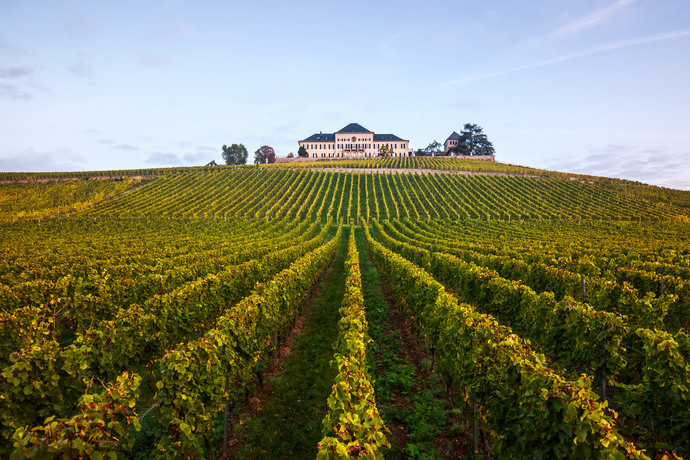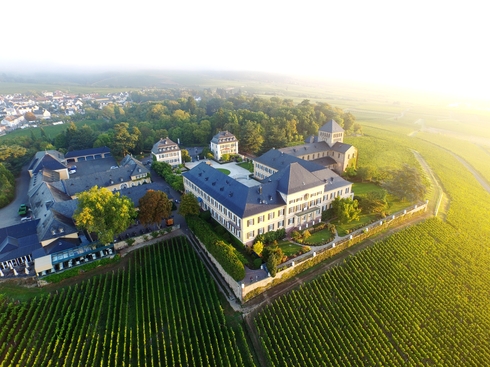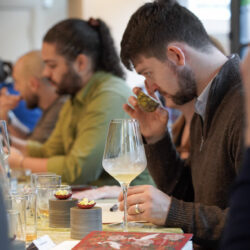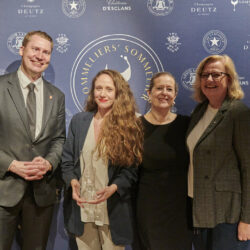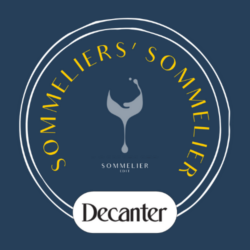Nestled in the Rheingau, Germany, Schloss Johannisberg is as a paragon of winemaking tradition. Stefan Doktor, head of wine, explains why.
Lauded for its exquisite Reislings, Schloss Johannisberg is a pioneer and testament to the vital relationship between terroir, Reisling and the art of winemaking. Stefan Doktor, head of wine at this well-known estate, is proud of the cellar where he has worked since 2016.
Born in Slovakia, Doktor graduated from the Austrian Wine Academy as a Weinakademiker. From there he went into sales and it is clear that wine is his passion; you can tell from the way in which he describes where he has the priviledge to work.
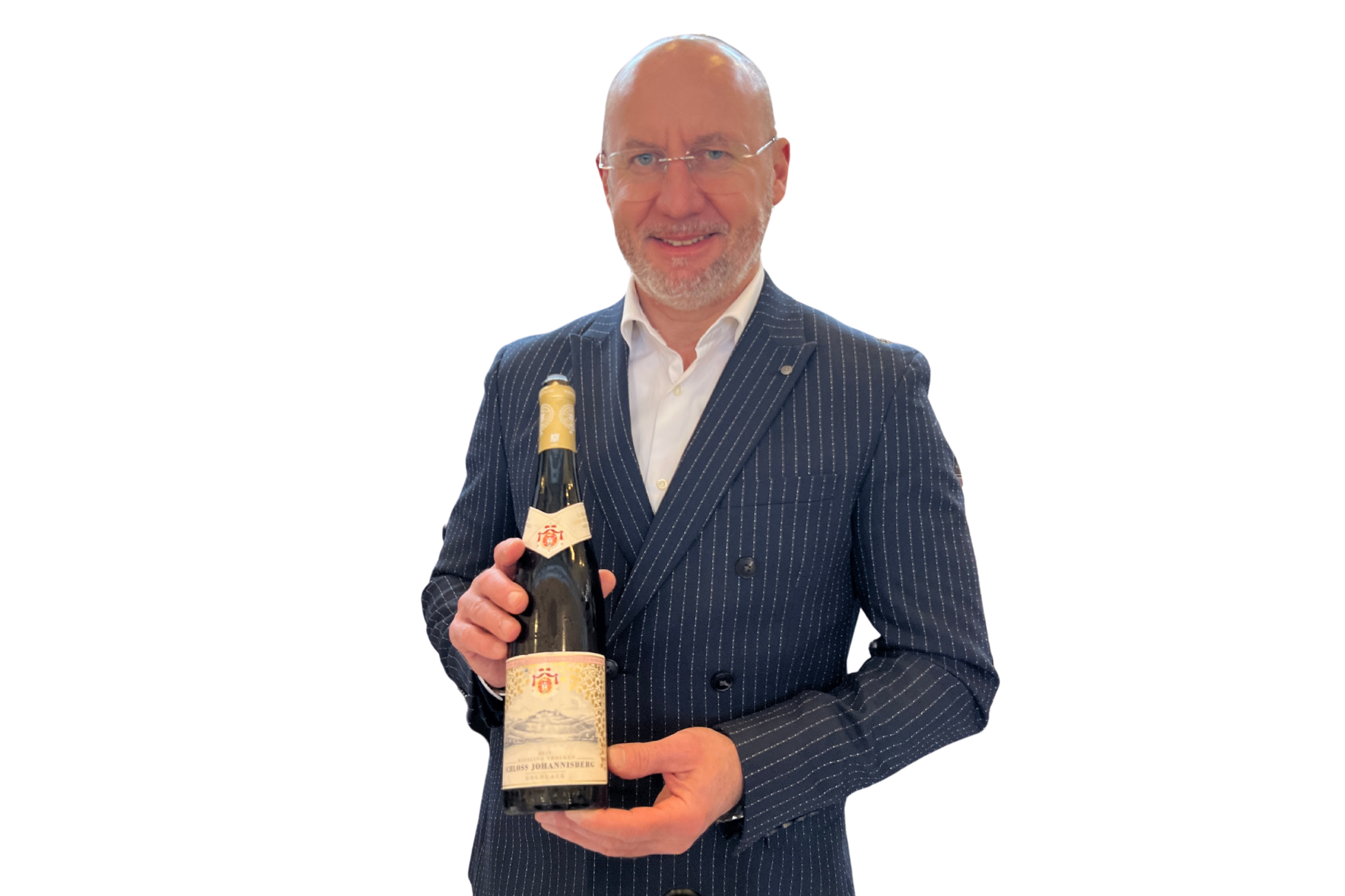
He puts it quite simply “Our cellar is great because, on the one side is very old, but on the other it is at the cutting edge of winemaking today. The castle was built as a monastery in 11th century, and part of the cellars date from then, but the biggest portion is from 1700’s when the castle was rebuilt. ”
The first documented evidence of winemaking on the estate dates back to 817 AD, making it one of the oldest wineries in the world. Doktor elaborates, “Perhaps the most amazing fact is that since 1720, the estate has specialised exclusively in growing and producing Riesling – a noble varietal renowned for its aromatic complexity and versatility.”
He believes that what makes the wines produced here so special is the relationship between riesling and the estate’s terroir.; 50 hectares of southward-facing vineyards on the Taunus Mountains, situated on a 45-degree slope which rises up to 182 meters above sea level. When you combine that with the quartzite soils and the estate’s location on the 50th parallel North, and you’ve got something extra-ordinary.
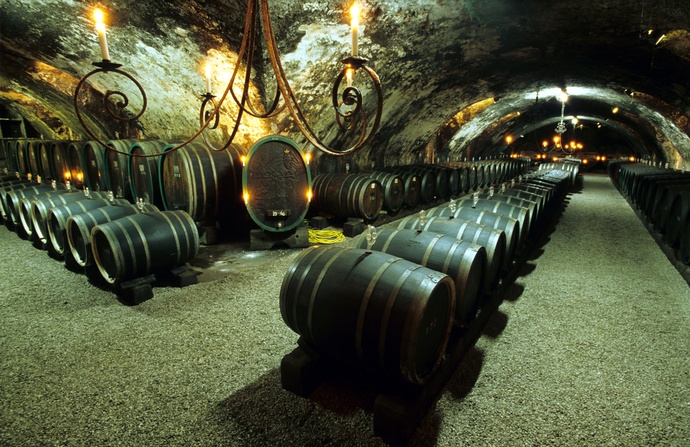
Another of Schloss Johannisberg’s famous treasures is the Bibliotheca Subterranea, a 900-year-old cellar located 10 meters deep underground. This creates ideal conditions for ageing the estate’s most valuable wines. The oldest bottle housed there dates back to 1748.
Schloss Johannisberg’s bottling system, developed in 1820, is just as famous as its underground cellar itself. Still used today, the winery’s unrepeatable labeling system is based on colored seals, printed labels from ages past – another reason why the wines have become the dream of collector’s far and wide.
I’m proud to produce dry wines with such low alcohol levels. This acidity, this freshness, allows our wines to age so well.”
Spectacular dry rieslings
Schloss Johannisberg is considered by many to be the benchmark when it comes to crafting dry Rieslings. Over the centuries these immaculate wines have received acclaim for their precision and character. Importantly the alcohol content averages around 11.5% ABV, making them not only lower in alcohol but packed with vibrant acidity. Doktor is proud of this fact.
“We have this huge historical cellar where the wines are fermenting and ageing until today. It’s a very important to maintain good temperatures. The climate in the cellar gives the perfect conditions for ambient yeasts.” As a result, he comments, “I’m proud to produce dry wine with such low alcohol levels. This acidity, this freshness allows our wines to age so well.”
If you are looking for a recent vintage to enjoy when you are out and about, the 2017 reislings are particularly good. Especially the dry riesling From Schloss Johannisbergwhich was the first to earn a perfect 100 point score. The wine, aged in large oak barrels for two and a half years, reflects the estate’s philosophy of allowing the wine to express its true nature without excessive manipulation.
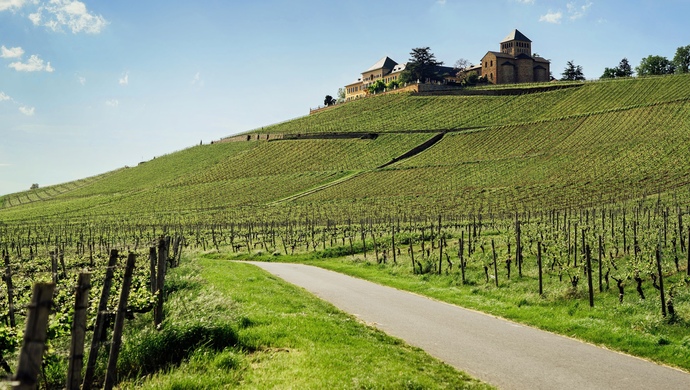
Lush sweet botryrised wines
Whilst dry Rieslings are a specialty, Schloss Johannisberg also excels in producing sweet reislings. The wines for which the Rheingau is perhaps best known.
Botrytis, or “noble rot”, concentrates the sugars in the grape. This process is taken to a different level at this estate, yielding the most luscious, rich wines which are balanced by a vibrant acidity that is characteristic of this estate.
2022 was a challenging year because of the low yieldsdue to lack of rain and the extreme heat. The consequent concentration in the grapes has resulted in exceptional sweet wines.
“The 2022 vintage, for example, showcased the resilience and skill at the winery, meaning that they can craft wines with great depth and character despite the challenges posed by the climate. Everything is changing. Temperatures are rising as we saw in 2022. Here at Schloss Johannisberg, however, the sugar levels don’t rise, it semms. It’s amazing. Even with the heat and such dry conditions. We really are in a unique psotion.”
A legacy of excellence
Schloss Johannisberg status is much more than a winery. It represents the enduring legacy and excellence of German winemaking. Making wine for a millennium of history it has developed a profound understanding of the estate’s terroir and how Riesling ineracts with the soil, climate and positioning to cultivate wines that are celebrated worldwide.
Whether you adore dry Riesling for its crisp acidity and aromatic character or indulging in lush, sweet wines, each bottle of Schloss Johannisberg gives you a taste of history. Tradition, innovation and respect for the land over 1,000 years all in one glass.

